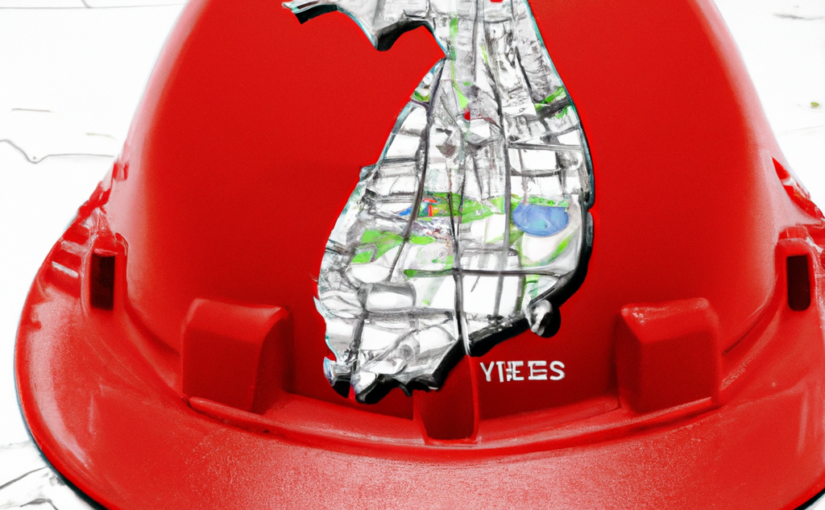Reading Time: 5 minutesInsurance Company Adjuster Questions? Get Legal Help! Call Now for a FREE Consult with an Experienced Workers Comp Lawyer at 844–682‑0999.
What Are 20 Common Questions You May be Asked in a Recorded Statement by Workers Comp Adjuster?
- How did your injury occur?
- Describe the incident in detail.
- What medical treatment have you received for your injury?
- How has your injury affected your ability to work?
- When did you first become aware of your injury or the onset of symptoms?
- Did you report the incident to your employer?
- Are you currently taking any medications for your injury?
- What restrictions have you been told to follow by your physician?
- Have your medical bills been paid by your employer?
- Have you received any other benefits from your employer in connection with this injury?
- How much time have you missed from work due to your injury?
- Have you been released to return to work?
- Are you currently receiving workers’ compensation benefits?
- Are you aware of any other potential sources of recovery for your injury?
- Are you represented by an attorney?
- Do you have any witnesses that can corroborate your version of the incident?
- Have you been able to perform your job duties since the incident?
- Are you able to perform the same duties as prior to the incident?
- Are you able to perform any work at all?
- Have you been able to return to any other type of work since the injury?
Have You’ve Been Injured on the Job?
No Obligation — Confidential — FREE CONSULT
844–682‑0999
Call Now
NO WIN — NO PAY
What are Top 20 Reasons Why A Workers Comp Claim is Denied?
1. Inaccurate or incomplete information. If the information provided on the claim is inaccurate or incomplete, the claim may be denied.
2. Failure to follow instructions. If the claimant does not follow the instructions for filing a claim, the claim may be denied.
3. Lack of medical evidence. If there is insufficient medical evidence to support the claim, the claim may be denied.
4. Failure to meet deadlines. If the claimant does not meet the deadlines for filing the claim, the claim may be denied.
5. No connection between the injury and the employer. If there is no connection between the injury and the claimant’s employment, the claim may be denied.
6. Lack of proof of injury. If the claimant cannot provide proof of injury, the claim may be denied.
7. Fraud or misrepresentation. If the claimant commits fraud or provides false or misleading information, the claim may be denied.
8. Pre-existing conditions. If the claimant has a pre-existing condition that contributed to the injury, the claim may be denied.
9. Failure to seek medical treatment. If the claimant does not seek medical treatment for the injury, the claim may be denied.
10. Ineligibility for benefits. If the claimant is not eligible for workers’ compensation benefits, the claim may be denied.
11. Failure to report the injury. If the claimant does not report the injury in a timely manner, the claim may be denied.
12. Injury is not work-related. If the injury is not work-related, the claim may be denied.
13. Misclassification of the employee. If the employee is misclassified as an independent contractor, the claim may be denied.
14. Occupational disease or illness. If the injury is an occupational disease or illness, the claim may be denied.
15. Insufficient medical evidence. If there is insufficient medical evidence to support the claim, the claim may be denied. 16. Injured worker is not covered by workers’ compensation. If the injured worker is not covered by workers’ compensation insurance, the claim may be denied.
17. The injury occurred outside of work hours. If the injury occurred outside of work hours, the claim may be denied.
18. Injury is not serious enough to qualify for benefits. If the injury is not serious enough to qualify for benefits, the claim may be denied.
19. Failure to provide the required documents. If the claimant fails to provide the required documents, the claim may be denied.
20. Failure to cooperate with the investigation. If the claimant fails to cooperate with the investigation, the claim may be denied.
How to Answer Workers Comp Insurance Adjuster’s Questions?
1. Answer all questions honestly and accurately. The workers’ compensation adjuster is responsible for assessing the claim and determining the amount of benefits due. It is important to answer all questions honestly and accurately to ensure a fair and accurate assessment of your claim.
2. Provide all relevant information. If requested, provide the adjuster with all relevant information, such as medical records, witness statements, and any other documents that are pertinent to the claim.
3. Ask questions. If the adjuster is asking questions that you don’t understand, don’t be afraid to ask for clarification.
4. Remain polite and professional. While it is understandable to be frustrated with the process, it is important to remain polite and professional when communicating with the adjuster.
What not to say to a workers’ comp claims adjuster?
1. Do not make false or exaggerated statements. Do not make false or exaggerated statements when speaking with the adjuster – this could be considered fraud and could result in a denial of the claim.
2. Do not make assumptions. Do not make assumptions about the claims process or the adjuster’s intentions.
3. Do not become hostile or aggressive. Do not become hostile or aggressive when communicating with the adjuster. This could be seen as uncooperative and may negatively impact the outcome of the claim.
4. Do not make threats. Do not make threats of legal action or other consequences if the adjuster does not act in your favor.
5. Do not discuss the claim in public. Do not discuss the details of the claim in public. This could be seen as an attempt to influence the outcome of the claim.
How do you negotiate with a workers’ comp claims adjuster?
1. Understand the claims process. Before attempting to negotiate with a workers’ compensation adjuster, it is important to understand the claims process and the adjuster’s role in it.
2. Gather evidence. Gather all relevant evidence, including medical records, witness statements, and other documents related to the claim, to support your position.
3. Make a reasonable offer. Make a reasonable offer that takes into account the circumstances of the claim.
4. Remain polite and professional. Remain polite and professional when communicating with the adjuster.
5. Be prepared to make compromises. Be prepared to make compromises on certain aspects of the claim in order to reach an agreement.
6. Follow up. Follow up with the adjuster as needed to ensure that the claim is progressing in a timely manner.
What are 10 factors Workers Comp claims adjusters consider to determine settlement value?
1. Assess the claim. The workers’ compensation adjuster will assess the claim to determine the severity of the injury or illness and the amount of compensation due.
2. Consider the expenses. The adjuster will consider the amount of medical expenses, lost wages, and other costs associated with the claim.
3. Determine the severity of the injury. The adjuster will consider the long-term effects of the injury and any permanent impairment that may result from it.
4. Assess the risk of litigation. The adjuster will assess the risk of litigation if the claim is not settled.
5. Consider state laws. The adjuster will take into account any relevant state laws that may affect the amount of the settlement.
6. Evaluate the claimant’s credibility. The adjuster will evaluate the claimant’s credibility to ensure that the claim is valid.
7. Consider prior settlements. The adjuster will consider prior settlements for similar claims to determine how much the settlement should be.
8. Review medical evidence. The adjuster will review medical evidence to assess the severity of the injury and the amount of compensation due.
9. Consider the claimant’s age. The adjuster will consider the claimant’s age and how long the injury may affect their future earnings.
10. Take into account the claimant’s lifestyle. The adjuster will take into account the claimant’s lifestyle and how it may be impacted by the injury.
#Amazon #AppealsProcess #BackToWorkAfterInjury #Calculators #ClaimsDenied #ConstructionWorkersCompensation #DeathBenefits #Employers #FloridaWorkersCompBenefits #FreeConsult #IndependentContractors #InjuredAtWork #InsuranceForWorkersComp #LawsIn50States #Lawyer #MedicalBenefits #NJLaws #OccupationalInjuries #OregonWorkersCompBenefits #OSHA #PermanentBenefits #RehireAfterInjury #RepetitiveMotionInjuries #Rights #SocialSecurity #TemporaryBenefits #TennesseeWorkersComp #TransportationWorkers #USDepartmentOfLabor #WorkersCompBenefits #WorkersCompClaims #WorkersCompDisabilityClaims #WorkersCompensationLaws #WorkersCompRights #WorkInjuryTerms









